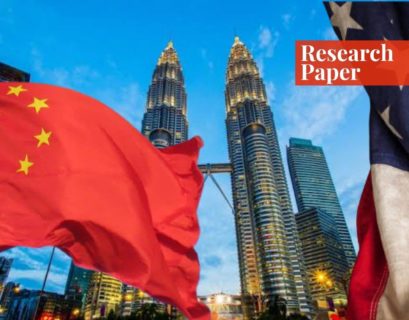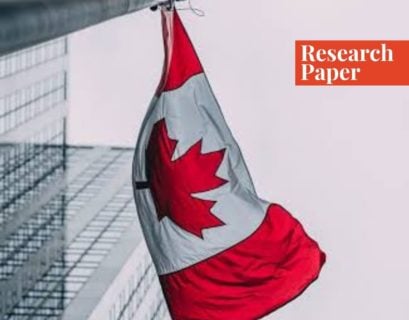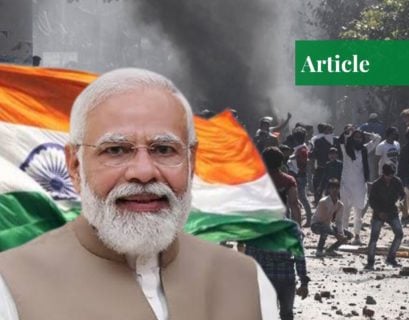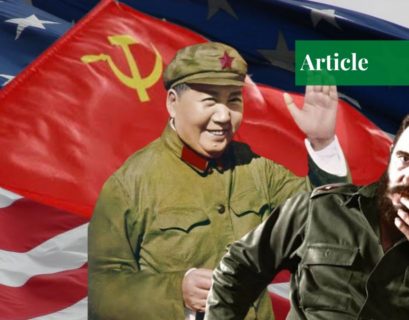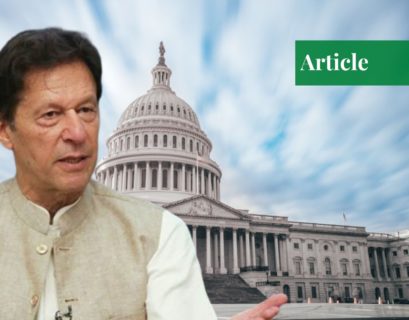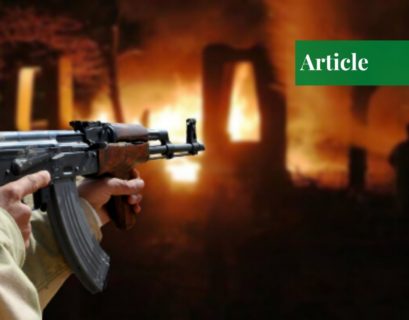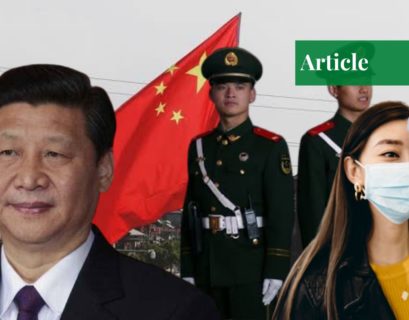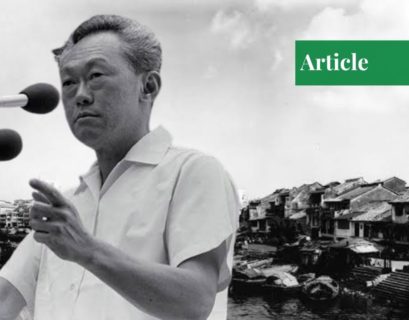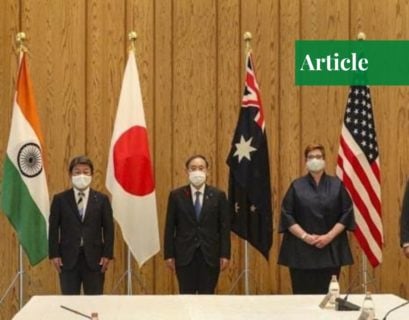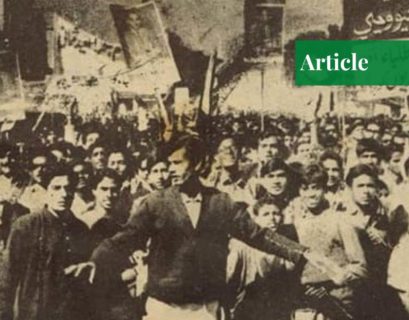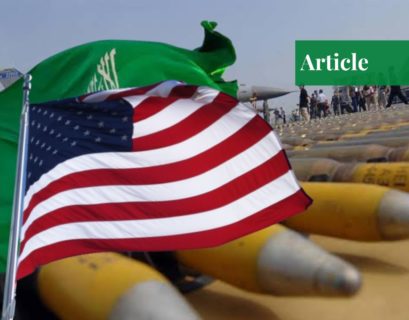China’s BRI vs the US’s FOIP: Foreign Policy Opportunities and Challenges for Malaysia
Contemporary publications identify Indo-Pacific as a hub of great power politics. The great powers, China and the US, are striving their best to enhance their sphere of influence across the region through BRI and FOIP respectively. These two strategies bring some opportunities along with certain challenges for ASEAN member states. In this research paper, the structural realism lens is used to analyze the foreign policy situation of Malaysia under these circumstances.
Explaining the Party System in Canada
Since the 1900s, the Canadian party system has evolved from a two-party system to a multiparty. Hurain Sheikh analyzes Canada’s party system in the light of Duverger’s law and Johnston’s study of the system. She argues that the present-day party system in Canada is not based upon polarization but rather on moderate pluralism. Since most Canadians have moderate views on social, economical, and political policies, even the parties with extreme ideological beliefs had to gradually adopt a more moderate stance to appeal to the masses.
Modi’s India & Hindutva-related Communal Violence
Communal violence in India has significantly increased since Narendra Modi’s Bharatiya Janata Party came to power in 2014. The rise in violence against Indian Muslims, in particular, can be attributed to the BJP’s promotion of Hindutva and its support for the creation of a Hindu-dominated state. The author, Muhammad Mustafa Ahmed Khan, notes that the Modi regime’s implementation of the Citizenship Amendment Act and the revocation of Article 370 are a representation of its anti-Muslim policies. He argues that while Pakistan has condemned India’s human rights abuses, the US has remained silent to maintain its economic ties with India.
Communism: The Constructed ‘Red Scare’
Communism is a political ideology that started gaining momentum in the 1920s. It was a champion for the East and had started to encroach on the West as it started to become popular amongst the lower class. To deal with such a broad and intangible threat, the Western powers (mainly America) built a negative and dangerous aura around it and used it to garner public support for themselves. This narrative building was done through securitization of the term and can be visualized in the public speeches of American Presidents of the Cold War era.
Making a Case for Sustainable Urbanization in Pakistan
Urbanization creates a huge impact on technological innovation and economic growth. However, it can be both an opportunity and a challenge. The author, Kashaf Imran, recommends coordination with municipal governments and the incentivizing of investments.
United with Imran Khan
After removing Imran Khan – the former Pakistani prime minister – from power, Pakistan’s new government has adopted the very policies the PTI leader stood against. The author, Mir Adnan Aziz, notes that Pakistan has once again fallen into the hands of politicians dancing to America’s tune. He asserts that in their insatiable greed for power, these corrupt politicians have overthrown the one person who attempted to break free from the chains that bound Islamabad to Washington.
The Critical Security Issues of Pakistan: Terrorism, Blasphemy & Sectarian Violence
Despite several years of relative calm and stability, the spectre of terrorism is rearing its head in Pakistan again. With dozens killed and several more wounded in just the past few months, many fear that Pakistan is going down a dark path back to its past, a past riddled with too many bullet holes. The Declaration of the United States’ War on Terror in the aftermath of the 9/11 bombings has resulted in untold carnage and death, most particularly in the countries of Iraq, Afghanistan, and Pakistan.
48th Session of the OIC: The Islamabad Declaration & the Organization’s Failures
Since its establishment in 1969, the Organisation of Islamic Cooperation (OIC) has tried to portray itself as a strong international actor promoting peace, cooperation, solidarity, and harmony between Muslim states. In March 2022, the OIC member states gathered in Pakistan for the 48th Session of the Council of Foreign Ministers and adopted the Islamabad Declaration. The author, Summaiyya Qureshi, argues that despite the numerous resolutions passed by the OIC over the years, the organization has been largely ineffective. She traces the causes of the OIC’s failure and describes, some of the resolutions incorporated in the Islamabad Declaration.
The US’s Purchase of Alaska
The United States of America purchased Alaska from Russia in 1867 and made it one of its fifty states in 1959. It is a very important maritime strategic asset of the US. The author, Summaiyya Qureshi, looks at how this tender took place.
The Civil War in Mozambique Through Vayrynen’s Conflict Transformation Model
The author, Hafsa Ammar, employs Johan Galtung’s ABC triangle and Raimo Vayrynen’s conflict transformation model to understand the transition of Mozambique following its civil war. The civil war on Mozambique presents a unique case study as it was a low-intensity, drawn-out war which lead to the maximization of damage over 16 years of sustained violence.
President Xi Jinping of China: The Pandemic, Growing Military Power & the Chinese Dream
With the removal of the limit on the term of the Chinese presidency in 2018, President Xi Jinping has consolidated more power. The reform has allowed him to remain in power for as long as he likes unlike the old traditions of the Chinese Communist Party (CCP). President Xi Jinping of China is highly praised by the CCP for his visionary economic, social, and foreign policy. The CCP has given him a status equivalent to that of revolutionary personalities like Mao Zedong and Deng Xiaoping. Asra Zahid notes that from effectively countering the COVID-19 pandemic, and strengthening China’s economic and military power to reviving the “Chinese Dream,” China has come a long way under the visionary leadership of President Xi Jinping.
The Highs and Lows of Pak-US Relations: From the Cold War to Now
The relations between Pakistan and the United States have always been based upon national interests and America’s dominant power position. While analyzing the history of this relationship, Aamina Binte Khurram argues that since the 1950s, the US has done its best to influence Pakistan’s foreign and domestic policies and pressurized the state to do its bidding in the South Asian region. The United States has leveraged Pakistan’s weaker position, and coerced Pakistani leaders on many occasions. Hence, it comes as no surprise that the Pakistan-US relationship has been marred with periods of hostility whenever the interests of the two states have diverged.
Destabilizing QUAD: One Member at a Time
The Quadrilateral Security Dialogue (QUAD), an alliance between the US, India, Australia, and Japan, reemerged in the international arena in 2017 as an effort to keep China in check in the Indo-Pacific region. The common interest of countering China bounds these states together but according to the author, Dr. Kankana Debnath, the visit of the Russian and Chinese foreign ministers to New Delhi has threatened the internal dynamics of QUAD.
US Arms Sales to Saudi Arabia
The arms trade between the West and the Middle East has been a long-standing factor in the relations between the two. Within the Middle Eastern region, the Kingdom of Saudi Arabia has risen as the largest arms importer, mainly relying on the US for weapons. The author, Rooha Javed, notes that between 2015 and 2020, the US pledged to sell weapons worth $64.1 billion to Riyadh. Moreover, despite the criticism of Saudi Arabia’s involvement in the war in Yemen, the US has continued the arms supply to the kingdom.
“Gold Russ-h”: The Russian Ruble vs USD
Facing enormous sanctions and economic setbacks, the Russian state is grasping at straws as it attempts to keep its economy afloat. Pegging the ruble to gold was a last-ditch attempt by Russia, but it seems to have struck gold. Or has it? The author, Muhammad Mustafa Ahmed Khan, explains the value and current state of gold, the dollar, and the ruble in the global financial markets following the sanctions on Russia.
